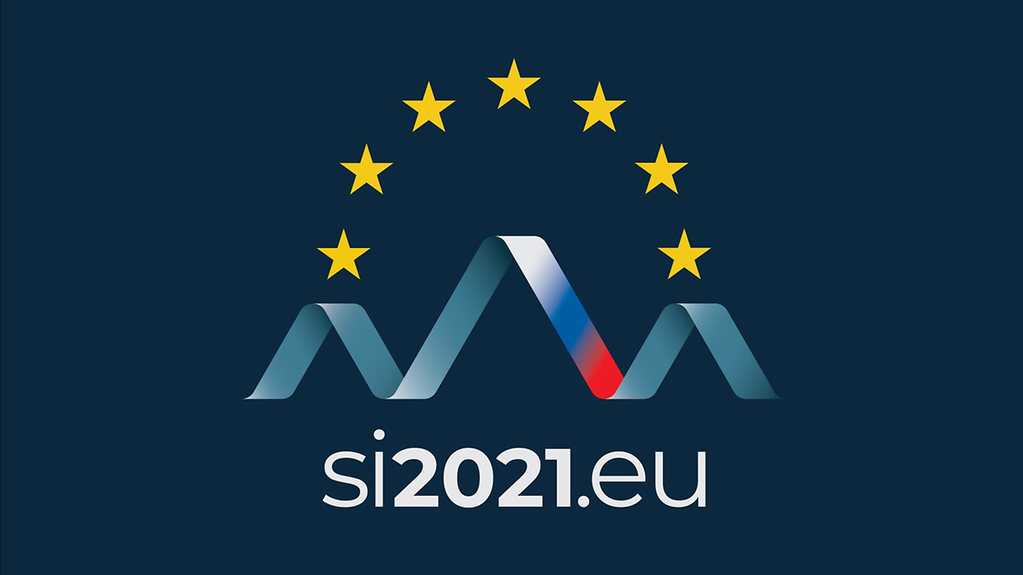Rotation system takes effect
Slovenia assumed the EU Council Presidency for six months on 1 July. The motto: “Together. Resilient. Europe.” Priority topics will be post-pandemic economic recovery, the Conference on the Future of Europe and the EU enlargement process in the Western Balkans. Slovenia forms a trio presidency with Germany and Portugal.
3 min reading time

Slovenia will hold the EU Council Presidency for six months.
Photo: Government Communication Office
Slovenia has been a member of the European Union since 2004 and joined the euro area in 2007. Now, for the second time since 2008, the Balkan country holds the Council Presidency of the European Union and will lead deliberations for a period of six months.
Four priority topics
Under the motto “Together. Resilient. Europe.” Slovenia will focus on four priorities during its Presidency:
1. The resilience, recovery and strategic autonomy of the European Union
Based on the experience of coronavirus pandemic, the EU is to be equipped with more effective instruments to protect the health of people in Europe. For this reason, Slovenia is particularly committed to building the European Health Union. In addition, the focus will be on economic recovery in the wake of the pandemic. The aim here will be to implement the Next Generation EU development fund, which is dedicated to accelerating the green transition and the digital transformation.
2. Conference on the Future of Europe
Slovenia attaches great importance to the “Conference on the Future of Europe”. Now more than ever, broad-based discussion is required on the main issues relating to Europe’s common future. The conference will promote Europe-wide debate on what the EU is to look like in the future if it is to meet citizens’ expectations. Dialogue will be conducted based on close cooperation between the three main EU institutions. Through the Council, the member states will also have a vital role to play in this.
For further details, see our website on the Conference on the Future of Europe.
3. A union that promotes the European way of life, the rule of law and equal criteria for all
The Slovenian Presidency will seek to focus on strengthening the rule of law as a shared European value. Based on the European Commission’s annual report, the Slovenian EU Council Presidency will conduct the annual dialogue on the rule of law in the EU and in the individual member states.
4. A credible and secure European Union, capable of ensuring security and stability in its neighbourhood
The Slovenian EU Council Presidency is committed to strengthening transatlantic relations. Through close cooperation with the USA and NATO based on shared values and interests, the aim will be to strengthen the EU’s position within the international community. Special attention will be devoted to the Western Balkans and continuation of the EU enlargement process. An EU-Western Balkans summit involving the 27 heads of state and government is planned for 6 October in Slovenia.
Trio with Germany and Portugal
Slovenia takes over the EU Council Presidency from Portugal, which itself followed on from Germany on 1 January. These three countries form a so-called trio presidency for 18 months. They have identified common themes and priorities for this period.
The EU Council Presidency: what is it exactly?
The Presidency of the Council is held by the EU member states according to a rotation system with a changeover every six months. During the six-month period, the presiding country chairs the meetings and sessions at all levels of the Council. This involves responsibility for advancing the Council’s deliberations on EU legislation and for ensuring continuity of the EU agenda and cooperation between member states. The presiding country must act as an honest and neutral mediator.
Some 190 events will take place in Slovenia in the course of its Council Presidency, including informal meetings between heads of state and government, ministerial meetings and ‑conferences, and lower-level meetings between experts. The principal venue will be Brdo pri Kranju, an estate near Kranj, about 40 kilometres north of Ljubljana.